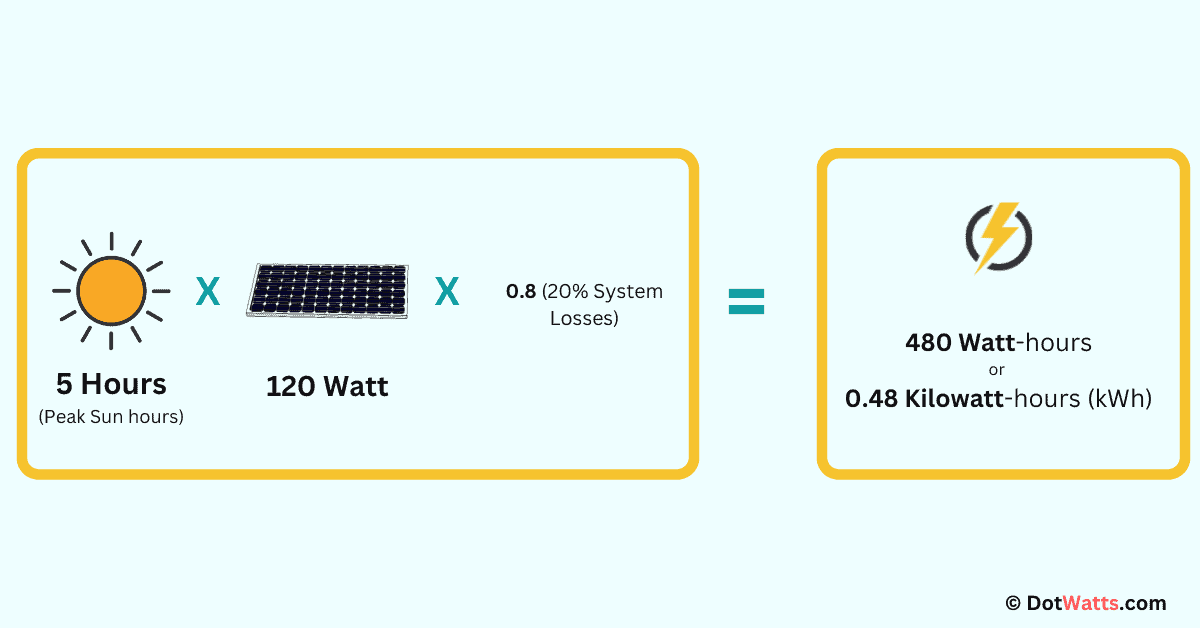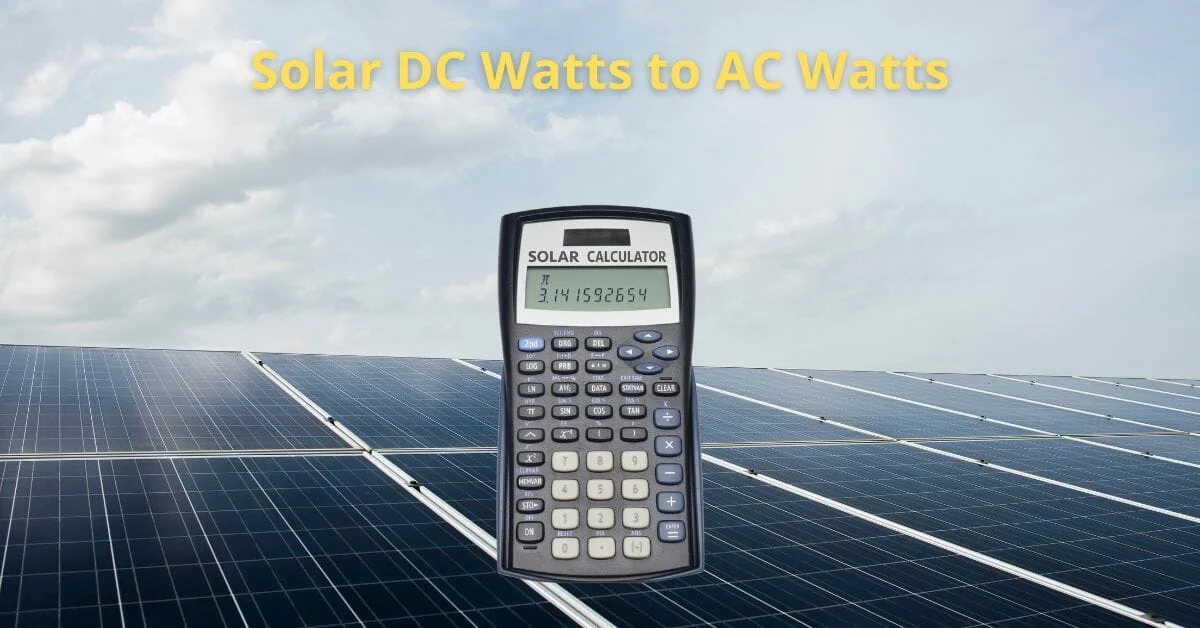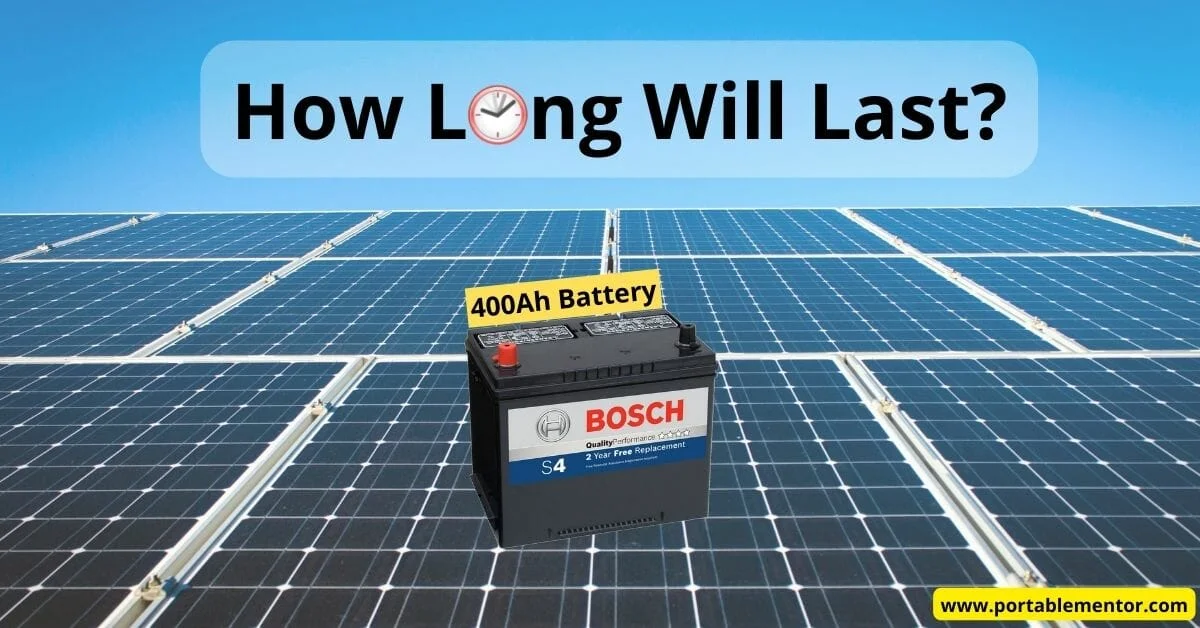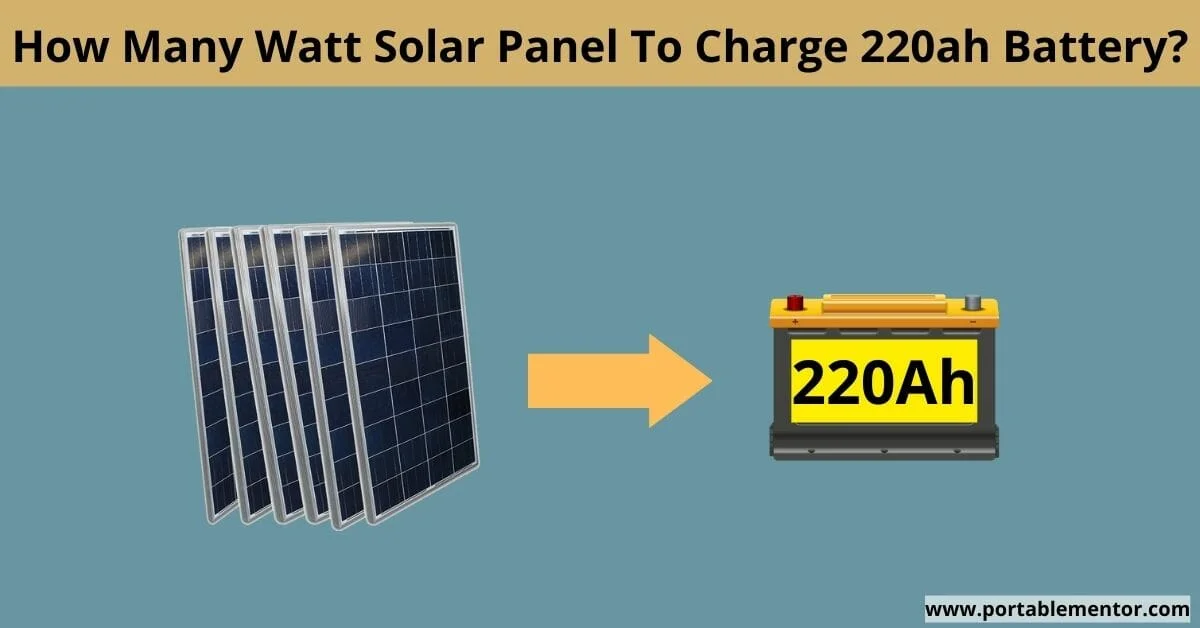This is going to be a short but complete guide on what will a 120 watt solar panel run. First of all, let's discuss how much power it will produce per day.
120 watt solar panel output per day

On average, a 120 watt solar panel will produce about 90 - 100 DC watts during peak sun hour (1kW/m2 of solar radiation hitting the surface of solar panel). And 450 - 500 DC watt-hours per day, considering 5 peak sun hours (5kW/m2 solar radiation).
Formula: Solar panel output = (Solar Panel rated wattage × Peak sun hours) × 0.8
What are peak sun hours? An hour in the day when the intensity of the sunlight reaches an average of 1000 watts/meter2.
How to calculate peak sun hours for your location? Visit PVWatts Calculator by NREL. Enter your address and click GO >>. Make sure that calculator has picked up the right location with the help of a map, if it does, click "RESULTS".

Now you'd able to see the total number of solar radiation your location receives per day from month to month.
Note: 1kWh/m2 of solar radiation = 1 Peak sun hour.
Use the above mentioned formula or use our free solar panel output calculator to find out.
Let's take 5 peak sun hours as an example.
(120 × 5) × 0.8600 × 0.8480 watt-hoursIn-depth article: 120 Watt Solar Panel Output (Amps, Volt, Watts)
Convert DC power into AC
The solar panel will produce output in direct current (DC). But most of our household appliances required alternating current (AC). So to convert DC into AC, we use an inverter. And they are about 85 - 95% efficient.
I'll take a 90% efficient inverter as an example and 480 DC watt-hours output based on 5 peak sun hours.
480 × 0.9 = 432 AC watt-hoursRelated Post: Solar DC Watts To AC Watts Calculator
What Will a 120 Watt Solar Panel Run?
120 watt solar panel can produce enough power to run most of the basic appliances like a fridge for a few hours, Tv, laptop, phone, LED bulbs, Fans, etc with the help of a battery during camping or in case of any emergency.
Follow these rules before running any appliance on a 120 watt solar panel.
Rule #1
When the battery is discharged at its recommended DoD (depth of discharge) limit, your output load should not be higher than the AC output of your solar panel at that time.
For Example, if your solar panels are only producing 90 DC watts then you can only run a total of 80 watts of AC load on it.
Rule #2
The power consumption of your output load should not be higher than the battery C-rating or discharge rate.
Every battery type has a different rate of discharge. which you can check on your battery specs sheet mentioned as c-ratings or max discharge rate.
This is not related to your solar panels but it will help to maintain the battery lifespan.
Use our battery charge and discharge rate calculator to find out.
Can I Run Appliances Directly From Solar Panel Without Battery?
The answer is yes, but it’ll only work safely with a big solar panel system grid-tied. For a small solar panel system like 120 watts? Still, you can but it can damage your appliance.
Here are some rules to follow if you still want to do it.
- The input power rating of the appliance should not be higher than the solar panel output at the time.
- For DC appliances use a DC-DC voltage regulator. To run an AC appliance, you’d need an inverter.
Warning: Do it at your own risk. I won’t suggest it. Is 120 Watt Solar Panel Enough?
A 120 watt solar panel system would be enough for short RV trips or camping. You can run most of the basic appliances with a 120 watt solar panel and a 50ah battery.
Calculate the total energy consumption of your appliances that you need to run on solar power. If the daily total consumption is between 400 - 500 watts then a 120 watt solar panel would be enough for you.
I hope this post was helpful to you, if you have any queries or suggestions contact us, Thank you!



